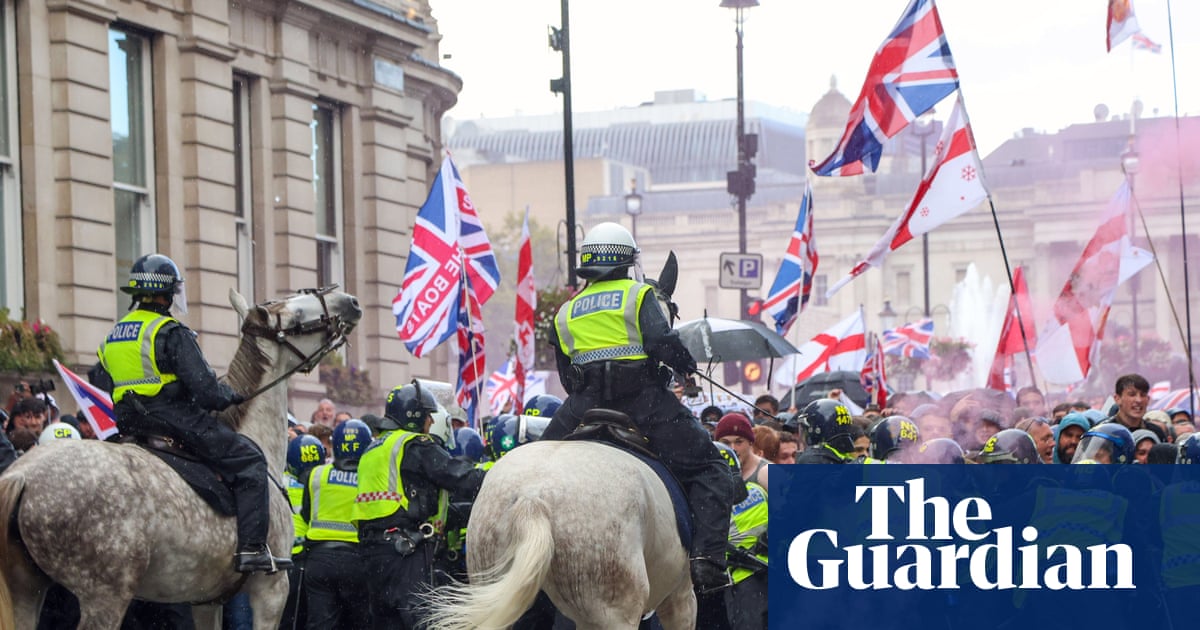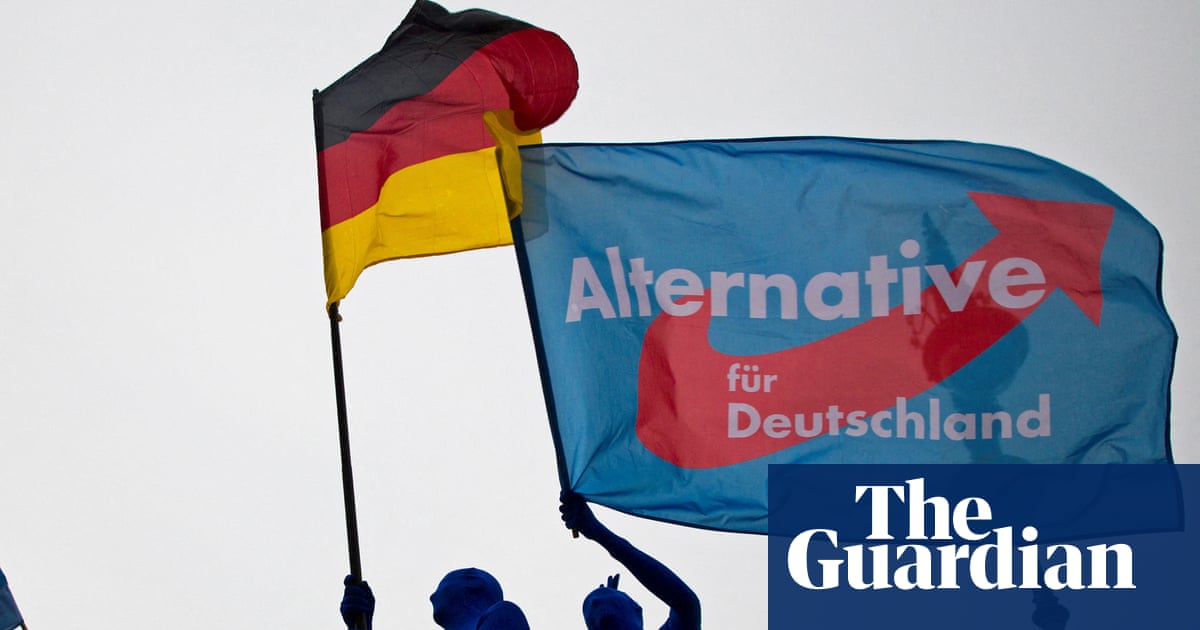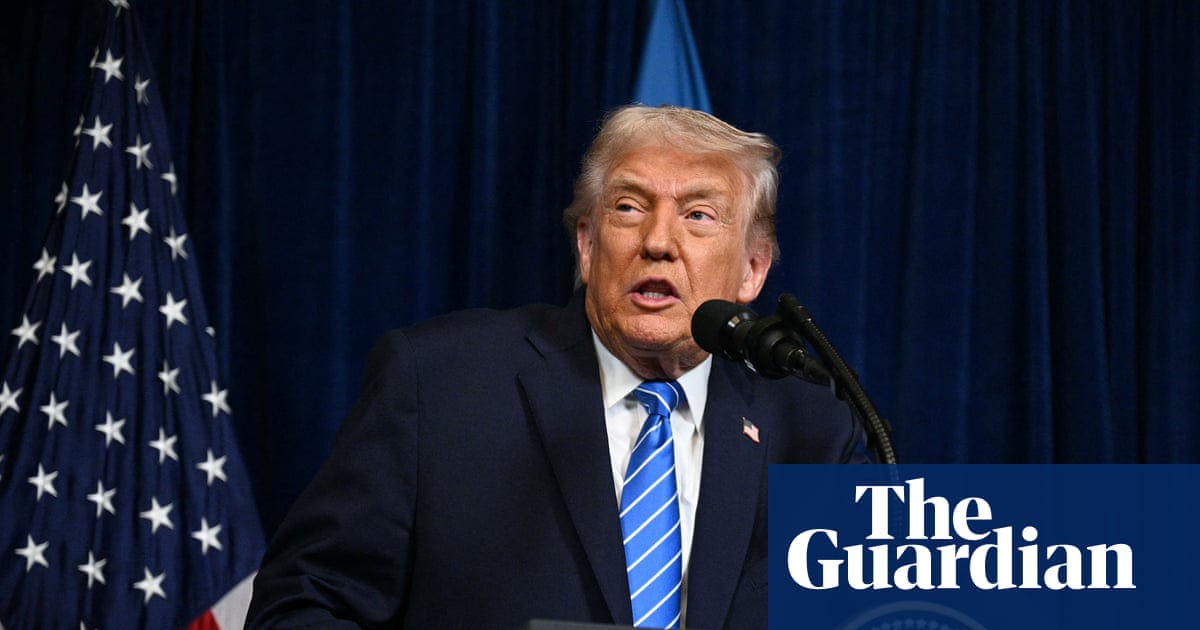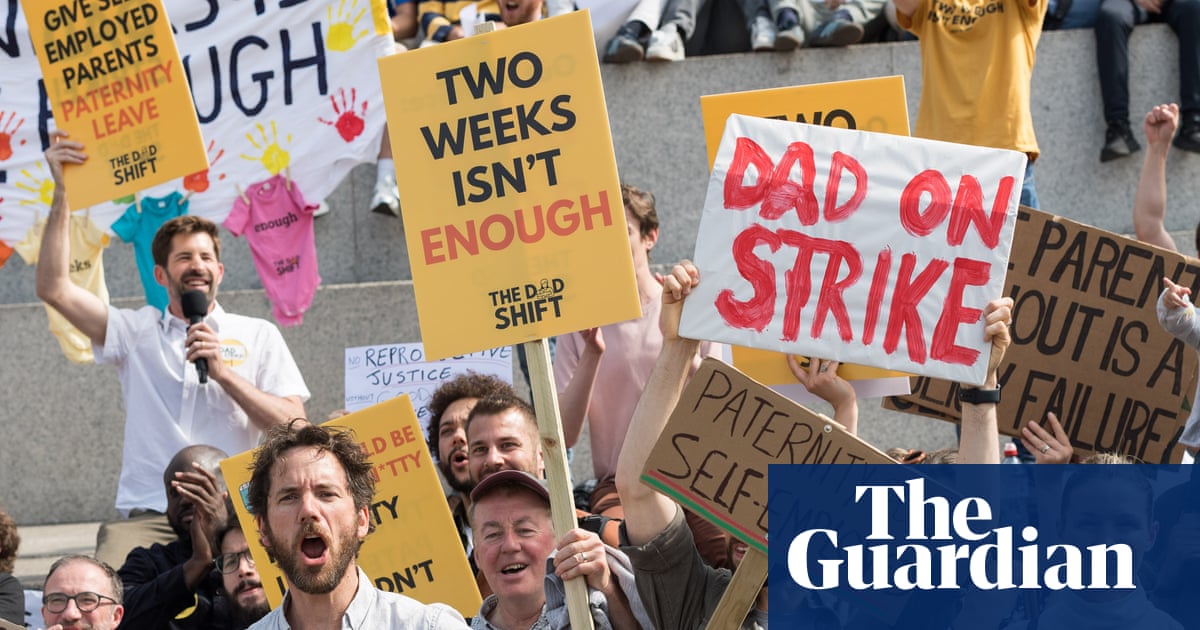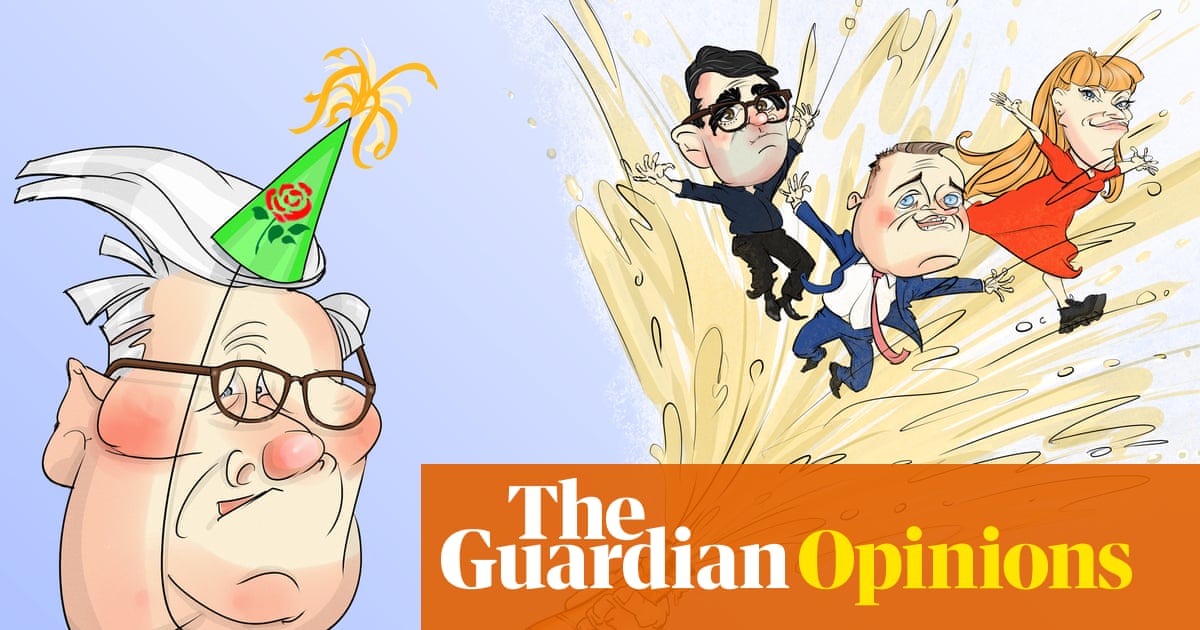In the latest series of Blue Lights, the BBC drama about police officers in Belfast, there’s a scene where a constable insists on staying with a mentally ill man until a nurse arrives. “This is an article two issue,” the officer tells his colleague – by which he means that under article two of the European convention on human rights (ECHR), incorporated into UK law by the 1998 Human Rights Act, the state has a duty to protect life. It is an uncontroversial example of how the ECHR, which turns 75 this week, has found its way into everyday life across the UK.
In Westminster, withdrawal from the ECHR has become a new rallying cry for the right, which claims it is the solution to unauthorised migration. In early October, Kemi Badenoch’s Conservatives said they want to take the UK out of the convention if they win the next election. Last week, MPs voted down a largely symbolic proposal by Reform’s Nigel Farage to do the same. The right’s hope is that it will become a wedge issue similar to Brexit. “We are not sovereign all the while we are part of the European convention on human rights,” Farage claimed.
Public attitudes to the ECHR are more nuanced than you might think. A recent poll by YouGov found that 46% of people oppose withdrawal, while 24% aren’t sure. The fact the right has managed to convince the remaining 29% of people their lives would be better off if we ditched a treaty that restrains the British state from murdering, torturing or otherwise abusing them is alarming, of course. But to formulate an effective response, there is no point sneering. Rather, it’s important to understand how and why far-right populists have been able to confect a belief that human rights exist only for the benefit of other, undeserving people.
The ECHR partly realises the human rights principles agreed on by governments at the end of the second world war. Those principles, outlined in the 1948 Universal Declaration of Human Rights, state that people have the right to freedom and dignity wherever they live. That implies economic and social rights – for instance, the right to a life free from poverty – as well as civil and political ones. But the ECHR focused mainly on the latter, specifying the right to life, liberty and a fair trial, among others.
Indeed, that’s why in the first few decades at least, it was a favoured cause of the British centre-right. The safeguards on individual liberty were supposed to protect Europe from communist dictatorship and, perhaps, prevent any Labour government’s large-scale redistribution of wealth. Indeed, a proposal for a “bill of rights” that would incorporate the ECHR more fully into UK law (at first the convention was only enforced by a court in Strasbourg) appeared in Margaret Thatcher’s 1979 election manifesto.
By the 1990s, however, the left had more enthusiastically taken up the cause – partly because it had seen how the UK’s relatively weak constitutional protections enabled the Thatcher government to crush organised labour. In 1998, Tony Blair’s government introduced the Human Rights Act. This requires public bodies such as courts, police forces, hospitals and local councils to respect the rights set out by the ECHR and allows British citizens to seek redress in a British court if they believe their rights have been violated. Legislation drafted by the government also has to comply with these rights.
According to the human rights expert Francesca Klug (in a 2016 book reviewed for the Guardian, as it happens, by an ambitious new MP called Keir Starmer), Blair’s government failed to realise the potential of the ECHR. Under attack from the right, it dropped plans for a public awareness campaign that could have fostered a genuine popular sense of ownership. (The recent poll, which surveyed people in Great Britain, found that just under half knew little about the ECHR; contrast that with Northern Ireland, where it is written into the Good Friday agreement.)
What’s more, New Labour missed an opportunity to broaden the scope of human rights to encompass economic and social protections. The UK, for instance, has never fully ratified the European social charter, a companion agreement to the ECHR first drawn up in the early 1960s, which covers issues such as housing, labour rights and employment. If we had, then perhaps Britain would not have worse income inequality and weaker trade union rights than many of its neighbours.
after newsletter promotion
This matters because, at heart, all these things, from individual liberty to mutual solidarity, are about what we owe each other as a society. If people in general are supported to flourish, then it is easier to make the argument that the especially vulnerable among us – a refugee seeking safety, for instance – might need extra forms of protection. If, however, people are pitted against one another in a winner-takes-all economy, then it becomes easier for a vicious politics of resentment to fester.
That is precisely what has happened in the UK. Over the past 20 years, the populist right has blamed the ECHR, with increasing fervour, for endangering Britain through the basic protections it offers immigrants the state might otherwise wish to deport. To be sure, this draws heavily on racist stereotypes of “criminal” foreigners and entails a great deal of myth-making about the way human rights protections actually work. But beneath that, it’s doing something else.
As many people in Britain have got poorer and sicker, or had to work harder for less, and the spaces and services that sustain communal life have been allowed to decay, the right has been saying: “Look, here are some people who should be even worse off than you. Don’t you hate the fact we’re not allowed to do what we want to them?”
After the past two summers, the dark place to which this leads does not need spelling out. But it won’t be avoided, as Labour currently believes, by meeting the right’s demands in the middle. Either the ECHR and the protection it offers us becomes part of a wider politics of equality – or we lose it.
-
Daniel Trilling is the author of Lights in the Distance: Exile and Refuge at the Borders of Europe and Bloody Nasty People: The Rise of Britain’s Far Right

 1 month ago
49
1 month ago
49









